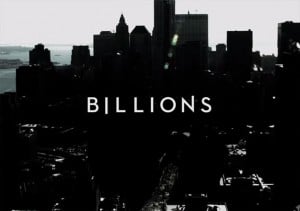 Readers of these pages over the years have seen their fair share of “Billions“-related content from your humble author. From my 2017 column on what boutique firm lawyers could learn from Bobby Axelrod, to my set of 2019 columns on the high-profile IP case filed against the producers and network by a prominent author and performance coach, Denise Shull, it should not come as a surprise that I am a fan of the show — and was intrigued by the IP entanglement it found itself in. Three columns in 2019 alone on the case should be sufficient proof. For those who are unaware, Shull sued “Billions” on a variety of claims arising in IP, based on her undisputed work consulting for the show regarding the fictional Wendy Rhoades character — a key protagonist, who happens to also be a performance coach for the stressed-out but high-performing hedge fund traders depicted on the show.
Readers of these pages over the years have seen their fair share of “Billions“-related content from your humble author. From my 2017 column on what boutique firm lawyers could learn from Bobby Axelrod, to my set of 2019 columns on the high-profile IP case filed against the producers and network by a prominent author and performance coach, Denise Shull, it should not come as a surprise that I am a fan of the show — and was intrigued by the IP entanglement it found itself in. Three columns in 2019 alone on the case should be sufficient proof. For those who are unaware, Shull sued “Billions” on a variety of claims arising in IP, based on her undisputed work consulting for the show regarding the fictional Wendy Rhoades character — a key protagonist, who happens to also be a performance coach for the stressed-out but high-performing hedge fund traders depicted on the show.
In my first 2019 column on the “Billions“ IP case, I used the facts of the dispute as a springboard into an analysis of the “outsized role” of emotions in IP disputes, concluding that a key driver of the case in my view was the fact “that both sides … feel betrayed in some measure.” I discussed how much could be gained by training IP lawyers to recognize and harness the role of emotion in many IP lawsuits, especially in terms of helping navigate cases to optimal solutions for clients — while maintaining a healthy appreciation for the “considerable efforts” expended by inventors and creators “in bringing their intellectual property to life.” My second column from 2019 was a more prosaic look at the briefing around Showtime’s motion to dismiss the case, with commentary on what IP lawyers could learn from how the arguments were framed by both sides. Third, and finally, I wrote a column on the actual decision in favor of “Billions,” concluding that “’Billions’ got its dismissal, but perhaps could have avoided the situation completely by being less dismissive” of Shull’s contributions to the Wendy Rhoades character.
With the Second Circuit recently closing the door on any realistic hope for a successful result against “Billions,” it has been interesting to see how Shull continues to press her grievances on Twitter against how she was treated. Since I think there is a lot we can learn from the experiences of actual litigants — even (especially?) from those on the losing side of an IP case — I reached out to Shull to offer her the opportunity to give us some insight into how she is processing her IP litigation experience. She graciously agreed to this interview, despite her busy practice and the immediacy of processing the negative news from the Second Circuit. Her professional profile and accomplishments speak for themselves, making it easy to see why the “Billions” team solicited her input in the first place. I look forward to presenting her thoughts to this audience. Before I do so, I must add that I have no stake in the outcome of the “Billions” IP dispute as anything other than an interested observer — and if someone from Showtime Legal, one of the executive producers, or the outside legal team wants to participate in a similar interview for this audience, the invitation is open.

How You Can Take Control Of Your Firm’s Financial Future
Roadblocks to data-driven business management are falling, and a better bottom line awaits.
Now to the interview. As usual, I have added some brief commentary to Denise’s answer below but have otherwise presented her answer to my question as she provided it.
Gaston Kroub: Taking on a well-heeled and prominent set of defendants in an IP case is a daunting challenge. What made you say that you needed to get your day in court?
Denise Shull: After [“Billions“ creators] Sorkin and Koppelman solicited my help in 2015, I told Brian that my book included a fictional story, and I played a fictionalized version of myself in that story. He got visibility upset and pressed me for how a trading psychology book could be fiction. While David Levien and Maggie [Siff, the actress playing Wendy Rhoades] were asking me if I would continue to help them, Brian hustled me out of the writers’ room and never spoke to me again. Maggie did keep asking for help (as did Showtime Marketing) but within a couple of months, she also developed an odd case of amnesia and could never seem to recall my name when asked who she worked with to learn how to play the character.
Next, beginning in 2016, the show’s first year, my appearances on CNBC were cancelled, interviews in the New York Times went unfinished, and producers told publicists they could no longer book me. After a dozen major media appearances in the years between the financial crisis and the “Billions” premiere, I became persona non grata across essentially all of New York City’s financial media.

GCs And Outside Counsel: Here’s Your Chance To Rate The Other Side!
We are looking for insights from both private practice law firms and the clients they serve.
I’d spent a lifetime building a unique consultancy and an exceptional reputation. I was invited or quoted in that media because of my distinctive value. In the proverbial blink of an eye, powerful people capitalized on my accomplishments, distorted them with a hypersexualized caricature and eviscerated my ability to broaden awareness of what I can provide. I realized that if I DO NOT stand up for myself, I have no right to coach the people I do on the challenges they face.
GK: No matter how you feel about the merits of her case, there is no doubt that her “Billions” experience was a costly one, not only in terms of losing the case, but more about the reputational harm she apparently suffered just for bringing the case in the first place. While we could argue about whether prospective litigants should do a better job evaluating the benefits and risks of IP cases before filing them, it is hard not to feel for Denise on a human level here. She may not have handled her interactions with the “Billions” crew in an optimal manner from a protection-of-her-interests-legally angle, but she did answer their call when they asked for her help building out a key character. In fact, she did consult a lawyer who advised her to take the first meeting as a good-faith first step toward a possible deal with the show. Moreover, Showtime asked for more of Denise’s help after the initial meeting with the showrunners and actress — further validating her belief that they would retain her as promised in a more formal capacity. In light of those facts alone, Denise’s desire to stand up for herself is very much understandable, even if the litigation process was ultimately unkind to her.
Next week, we will hear from Denise about what she thinks motivated her adversaries and what frustrated her most about the IP litigation process.
Please feel free to send comments or questions to me at [email protected] or via Twitter: @gkroub. Any topic suggestions or thoughts are most welcome.
Gaston Kroub lives in Brooklyn and is a founding partner of Kroub, Silbersher & Kolmykov PLLC, an intellectual property litigation boutique, and Markman Advisors LLC, a leading consultancy on patent issues for the investment community. Gaston’s practice focuses on intellectual property litigation and related counseling, with a strong focus on patent matters. You can reach him at [email protected] or follow him on Twitter: @gkroub.